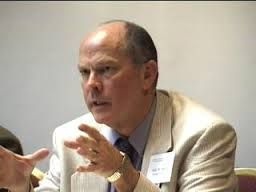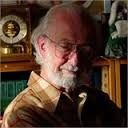Shared Beliefs and Values within a Social Context:
Many similarities between a number of cultures
Engineering is a Cross-Culture and Innovating Subject:
Science and Technology are included in this subject
These keep on introducing new social innovations, activities, issues, problems, etc. Computer, Internet, Electronic equipment, etc
Religions support the Moral Autonomy as long as:
Individual autonomy is respected and discrimination is avoided
But usually the Engineers and Scientist do not share any religious aspect or theory while designing something
They plan, design, change, etc according to the circumstances, way of life, choice of the people, etc
Inevitably affects the public choice and interest, in return
Imposes a professional obligation and responsibility
All the Ethical Theories agree that the responsibility to the public is paramount
E.g: Duty of care, Human Rights, Great Goods, etc
However, Employers and Engineers also have their Rights
Case-by-case Decision, Balancing the Moral Obligations, Search for Win-Win Options
Conflict Resolution
What is the Basis of Professional Obligation and Responsibility to protect the Public Interest?
Legislative View: Laws define the acceptable / unacceptable behaviours or activities
However, legal Obligations and Responsibilities differ from country to country, even from one state (or tribe) to another one in the same country
Unethical behaviour or activity may not be illegal due to the laws lag behind the innovation and modernisation
View of a Professional Society:
Behaviours, activities, interactions, etc must be guided by the Code of Ethics
However, all the Engineers do not join a certain society
Code of Ethics vary from a certain Professional Society to another
View of Employment Contract:
Contract with an employer specifies the certain behaviours, conducts, reactions, etc
However, a contract may conflict with the public interests
Another basis for duty to the public:
Contract between a profession and society
Society grants certain privileges in return to expectation of ethical behaviour: Duty to exercise the power wisely
Appealing but may not be stable or uniform with the lapse of time:
Western societies are putting significant emphasis on legal remedies of unethical behaviour
Status and image of a profession is declining (Commercialisation)
Cost of Professional Indemnity Insurance is rising
Some situations with Implications
Privacy of databases and Internet use
Censorship of unwanted material entertainment media, etc
Risk of health in various aspects against various radiations (heat, radioactivity, radio waves, x-rays, ultra-violet rays, etc) and fields (electric, magnetic, electromagnetic, electrostatic, etc)
Environmental impacts of thermal and nuclear power stations
Use of Electric-Chair for State execution (Electrocution)
Some Open Issues in Professional Ethics:
Professional Ethics is an Evolving subject
Existing theories may develop and new theories may emerge
Social expectations may change due to the change in social, economic and technical set-ups
Moral Reasoning is mostly Culturally Based:
Moral / Ethical theories may mostly change due to the change in social, economic and technical set-ups and these set-ups mostly come from Western World
So we can say that the Moral and Ethical Theories are mostly based on Western thoughts
They focus on individual behaviour rather than group behaviour
Internationalisation is causing / forcing change
In keeping the balance between “business – government” and “individuals – society”, international frame-work weakens and vice-versa i.e. between “business – government” and “international organizations – governments”
International norms may emerge and involve, include or replace the national or local norms
Changing and scientific and technological evolution not only influence but determine the social customs and ethical behaviour
Even if the scientific and technological evolution does not determine the traditional customs and ethics, however it puts a marked impact on the traditional customs and ethics
Change of social customs and ethical behaviour is due to the people’s choices, preferences and values which in return are affected by the scientific and technological change
Social customs and hence the ethical behaviour of one’s daily life are definitely determined by the changing science and technology
E.g. invention of electricity, electronic appliances, computer, internet, telecommunication equipment, fast communication media, etc have totally changed our life pattern and hence the social customs and ethical behaviour – going into the bed and rising up in the morning patterns of nowadays as compared to those in ancient life
The way we celebrate the ceremonies, festivals, events, etc have been altogether altered by the above
In ancient time, the people had a tradition to climb on the high trees or mountains to look for or search to wave to their relatives on certain important occasions; now these have been replaced by the telephonic calls, e-mailing and (web-cam) chatting, etc
With all this, the criteria for right and wrong have also been changed
Tolerance in diversity has been increased due to increase in global border crossing and mingling of people of various origins
Mike W Martin and Roland Schinzinger, both were the professors of Philosophy at The University of California, Irvine, Calf, USA. Roland Schinzinger was the founder of Department of Philosophy at this university
Both had been working / teaching, writing and participating (in seminars and projects) of Engineering Ethics > Moral Reasoning – their philosophy concerning Engineering Ethics is known as “Martin and Schinzinger Ethics in Engineering”





